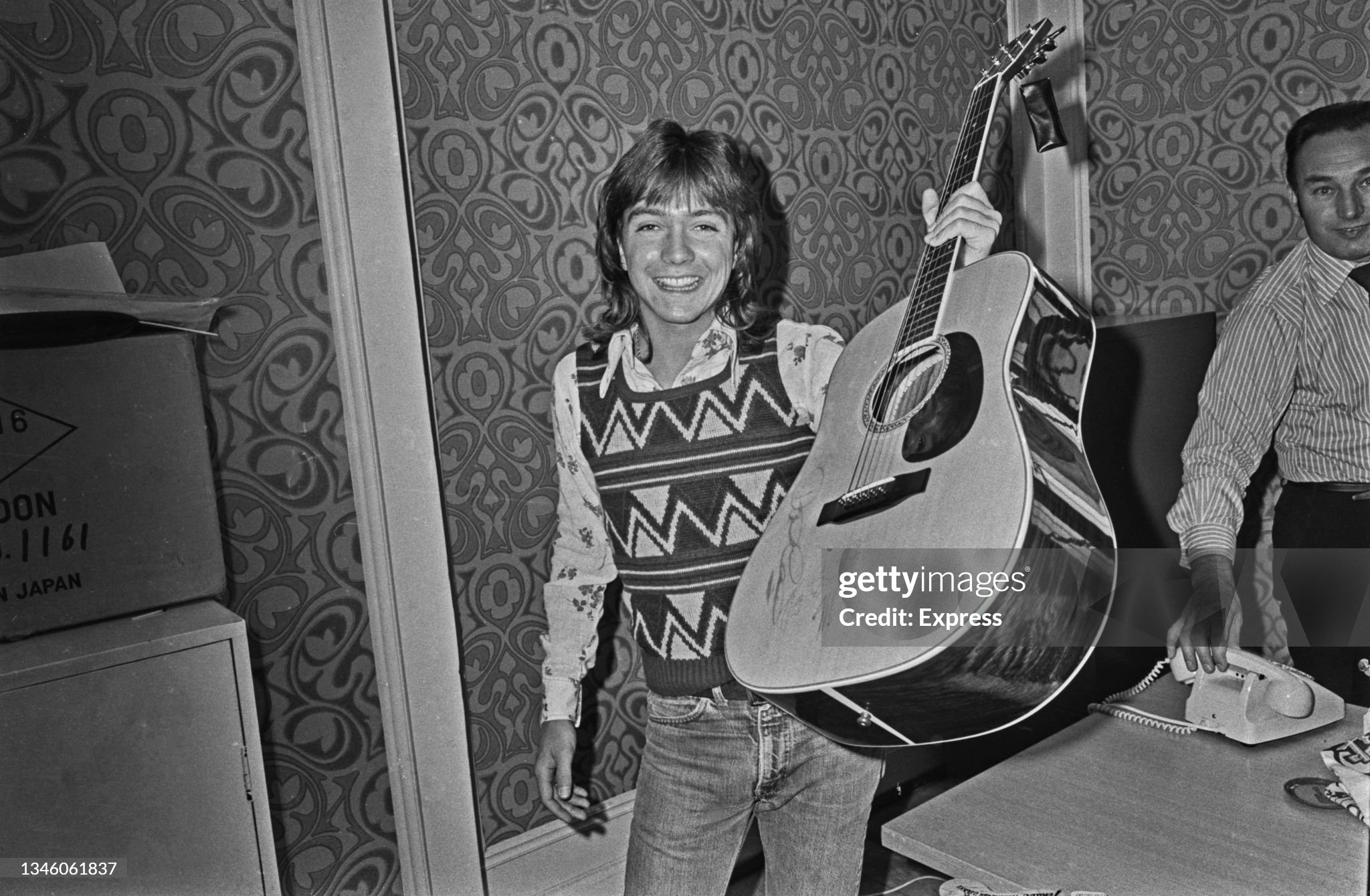
“Tenderly” is David Cassidy’s quiet admission that love isn’t won by noise – it’s held, carefully, in the spaces where a voice finally stops performing and starts telling the truth.
In the story of David Cassidy, “Tenderly” belongs to the chapter that many casual listeners never fully saw: the grown-up chapter, written after the stadium screams had faded into memory. The song appears on his 1985 album Romance—his only studio album of the 1980s—recorded at RG Jones (London) and produced by Alan Tarney, the British hitmaker known for sleek, emotional pop craftsmanship. On the album’s track list, “Tenderly” sits as track 8, and its authorship is credited simply and tellingly to Alan Tarney—not a remake of the famous 1946 standard “Tenderly,” but a different song entirely, written for Cassidy’s mid-80s reinvention.
Because of that, the chart story needs to be told honestly. “Tenderly” did not arrive as a major standalone single with a debut position of its own on the main UK charts, and it has no separate UK chart run listed in Cassidy’s official UK chart history—unlike the era’s real movers from Romance. Instead, it lived inside an album that did chart: Romance reached No. 20 on the UK Albums Chart and stayed on the chart for six weeks. And if you want a sense of what was getting the radio light in 1985, the same period brought Cassidy a notable UK single comeback: “The Last Kiss” peaked at No. 6, while “Romance (Let Your Heart Go)” reached No. 54.
That difference—between the songs that chart and the songs that stay with you—is exactly where “Tenderly” finds its power.
The wider backstory of Romance is a little bittersweet, and it colors the way the song lands. By the mid-80s, Cassidy had spent years trying to step out from the silhouette of teen idol fame, and his later 1970s records hadn’t charted in the United States. For Romance, Arista chose to withhold a U.S. release at the time, focusing instead on markets where his name still carried momentum—Europe, Australia, Japan, and more. There’s something quietly poignant about that decision: it suggests an artist still searching for the right room to sing in, still wanting the world to hear him as a man rather than a memory.
And then there’s the heart behind the project. Accounts of the album’s making describe it as written around—before and after—Cassidy’s marriage to Meryl Tanz, with Cassidy expressing gratitude in the album notes for the long, patient process of bringing it to life. That matters because “Tenderly” doesn’t feel like a performance aimed at impressing a crowd. It feels like a page from the private part of the book: the place where someone admits how love changes when you’ve lived long enough to know it can be lost, misunderstood, or simply exhausted.
Musically, you can hear Alan Tarney’s signature in the song’s shape: smooth edges, melodic clarity, and a chorus designed not to shock but to settle—the kind of adult pop that doesn’t beg to be called “cool,” because it’s too busy being sincere. Cassidy’s vocal, too, carries a particular kind of restraint. Earlier in his career, the brightness of his tone could sound almost like sunlight reflecting off a poster. Here, the light is softer, closer to lamplight. The phrasing feels careful—like someone choosing words that won’t break what they’re trying to hold together.
That’s why the title “Tenderly” doesn’t read as a cliché in his hands. It becomes a decision. A way of loving that is no longer about conquest, or drama, or the thrill of being wanted by the world. It’s about the gentler courage of intimacy: staying kind when it would be easier to be guarded; staying open when history gives you every reason to be wary.
And perhaps that is the quiet meaning of “Tenderly” within the David Cassidy catalogue. It’s the sound of a famous voice stepping away from the echo of old applause and leaning toward something more human—love spoken plainly, without the need to win the room. Not a chart moment, exactly. More like a personal one: the kind you don’t measure in weeks at No. 20, but in the way a song can make you remember that tenderness—real tenderness—has always been one of the bravest sounds a singer can make.